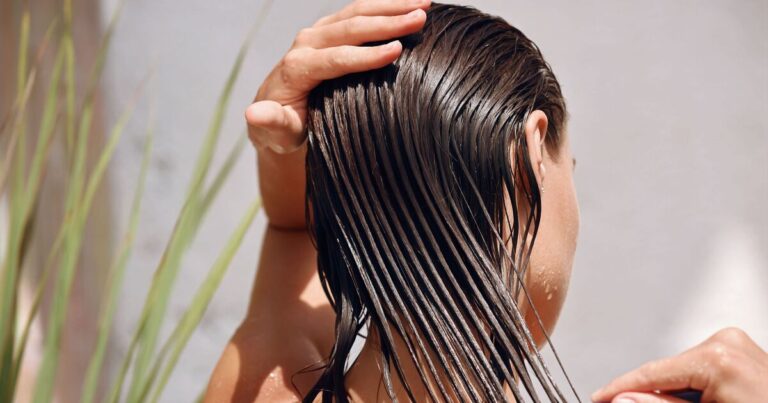With the onset of cold winter, the drop in temperature and humidity takes a toll on your hair, making it dry, frizzy, and prone to breakage.
A good hair care routine starts with what an individual puts into their body, and getting the right nutrients will help your hair withstand the harsh conditions of winter.
Sam Shinkiel, CEO of Aesthetic Medical Group, a leading skin and hair specialist, says: “Like skin care, hair care starts from within. There are a number of factors that make a huge difference in maintaining the vitality and resilience of the body.” Diet certainly plays a role in maintaining healthy hair.
“For example, if you don’t get enough protein, your hair risks becoming dry, brittle, and weak. Iron helps maintain a rich blood supply to the hair follicles and roots, so it’s also good for healthy hair.” It’s essential.
“Other nutrients most associated with healthy hair growth include vitamin D, vitamin C, and zinc, and you should eat a varied diet that includes these vitamins.”
Experts have shared five foods Brits should include in their diet to keep their hair healthy and vibrant during the cold season.
1.Salmon
Salmon is a great source of omega-3 fatty acids, which are essential for nourishing the scalp and maintaining hair strength. Omega-3 increases hair elasticity, reduces hair breakage, and increases resistance to harsh winter air.
This fatty fish is also rich in protein and vitamin D, which are important for hair health.
Healthy fats like omega-3s are essential to keeping your hair hydrated and strong, especially in the winter when dry air tends to strip moisture from your scalp.
2. Eggs
Eggs are one of the best sources of biotin, a B vitamin that plays an important role in hair growth and strength. A biotin deficiency can lead to hair thinning and breakage, which can be made worse by winter cold.
These provide high-quality protein, which is important for maintaining hair structure and preventing split ends.
Eggs are also rich in essential nutrients such as selenium and zinc, which promote scalp health and keep your hair strong and healthy.
3. Sweet potato
Sweet potatoes are rich in beta-carotene, which is converted to vitamin A in the body. This stimulates sebum production. Sebum moisturizes the scalp and prevents dryness, a common winter problem.
Without enough sebum, the scalp becomes dry and flaky, leading to dandruff and weak hair. Sweet potatoes also help keep your hair soft and shiny, giving it a natural shine despite the effects of winter dryness.
4. Nuts and seeds
Nuts such as almonds and walnuts and seeds such as flaxseed are good sources of vitamin E, which improves blood circulation in the scalp, promotes hair growth, and prevents hair loss.
These foods are also rich in omega-3 fatty acids, which nourish the scalp, reduce inflammation, and keep hair follicles healthy. These nuts also contain zinc, which helps protect your hair from thinning and dryness that comes with winter.
5. Spinach and leafy greens
Leafy greens like spinach are rich in iron, an essential mineral for maintaining strong hair follicles. Iron deficiency can lead to hair thinning and hair loss, especially in cold weather when blood circulation to the scalp is reduced.
Spinach also contains vitamin C, which helps absorb iron, and vitamin A, which helps keep your scalp moisturized and supports overall hair health.

